I am many things
20.02.2020 | "Futur Drei" in the Panorama section of the Berlinale
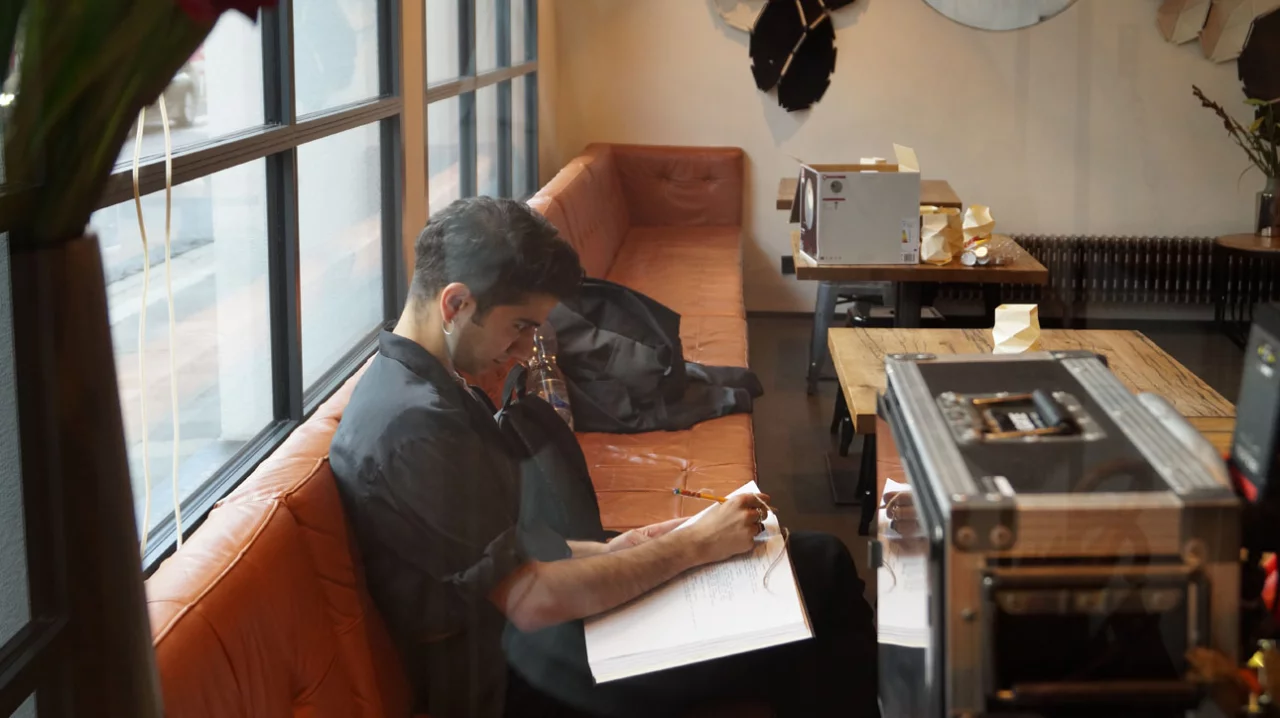
On 23 February, the film "Futur Drei" by up-and-coming director Faraz Shariat, which won the First Steps Award last year, celebrated its premiere at the 70th Berlinale. With his film collective "Jünglinge", he is committed to a queer, feminist and anti-racist agenda in the film industry.
"I am many things". A sentence that protagonist Parvis says dreamily to his friends on the roof of a high-rise building in the film "Futur Drei". A sentence that Director and Script Writer Faraz Shariat repeats again during an interview in January 2020. A few months ago, he won the First Steps Award in the "Full-length feature film" category with his cinema debut "Futur Drei". There was also the Götz George Newcomer Award for the film's three leading actors. A remarkable start for a newcomer in his mid-20s who has mainly shot music videos and advertising clips in the past. And now this: in February, the queer coming-of-age film will celebrate its world premiere at the Berlinale. It's a wild ride that the Cologne native can't quite grasp yet: "I woke up in the morning and got a message on my mobile from Michael Stütz, who is in charge of the Panorama section at the Berlinale. He wrote that we were in. I was completely freaked out and couldn't believe it. "Futur Drei" is my first film. We had always hoped to be able to place it at the Berlinale - but the fact that it has now happened is amazing."
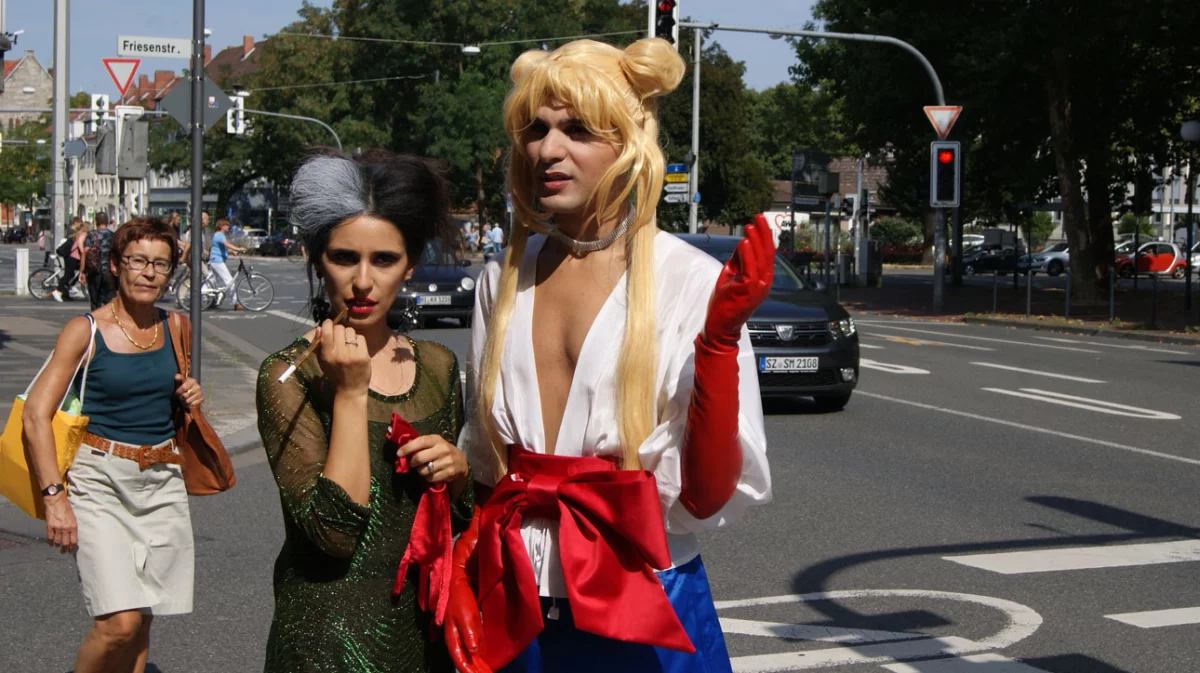
Faraz wrote the script together with Paulina Lorenz. The two met while studying together in Hildesheim and quickly decided to set up their own production company with "Jünglinge". The third member of the team is Raquel Molt, who was responsible for casting "Futur Drei", among other things. The three see themselves as a collective in which the majority of the tasks are shared among them. They often develop the stories for their projects together. A way that leads to faster and better results. Producer activities are also shared. A queer, feminist and anti-racist agenda is at the centre of the collective: "We want to create spaces in the film industry for people who work in this field. After all, there is no point in telling stories about queer or anti-racist issues without involving these people in the film projects," says Faraz. Sounds obvious, but is unfortunately far from a matter of course. And so the "youngsters" set out to scrutinise existing production processes and editorial work and get their name into the game.
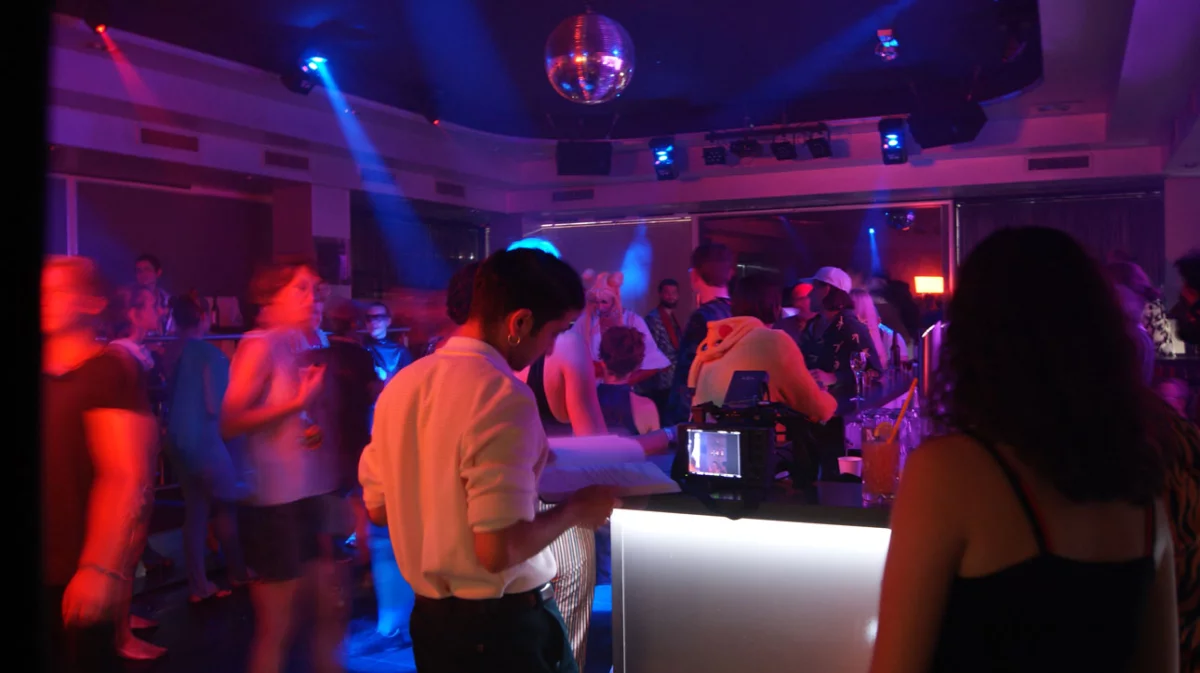
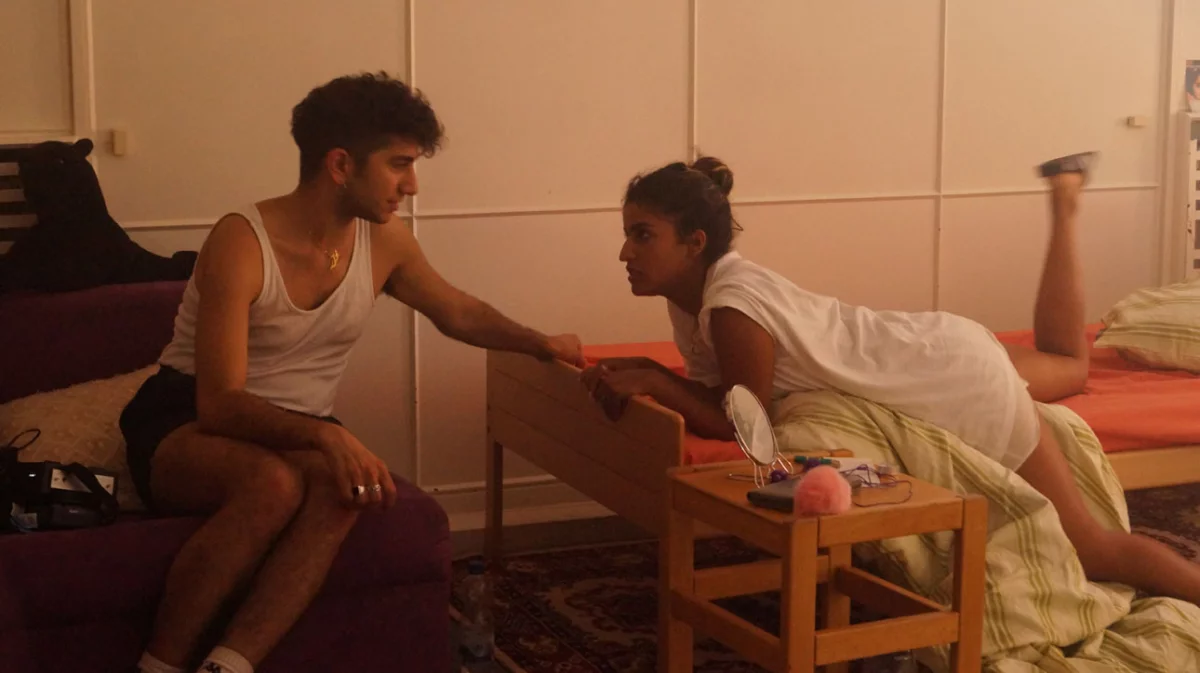
For "Futur Drei", however, Faraz has brought other help on board from within his own ranks in addition to his university friends. Anyone familiar with his Documentary "I am your son" will have recognised two faces: Those of his two parents. He was forced to work with them during university - but now he really appreciates their support: "They play really well and also supported me emotionally during the shoot. The two of them exuded a parental warmth on set, not just for me but for the whole team. I think it's great to have experiences with them that are outside of the normal family construct." Anyone who didn't recognise Faraz's parents, on the other hand, may have had a little aha experience with another actor. None other than Jürgen Vogel is part of the cast. How did that come about? The celebrity actor is a friend of Raquel Molt's father. "You have to stand up to a lot of people with your first film. It helps to have a name like Jürgen Vogel on board," reveals Faraz.
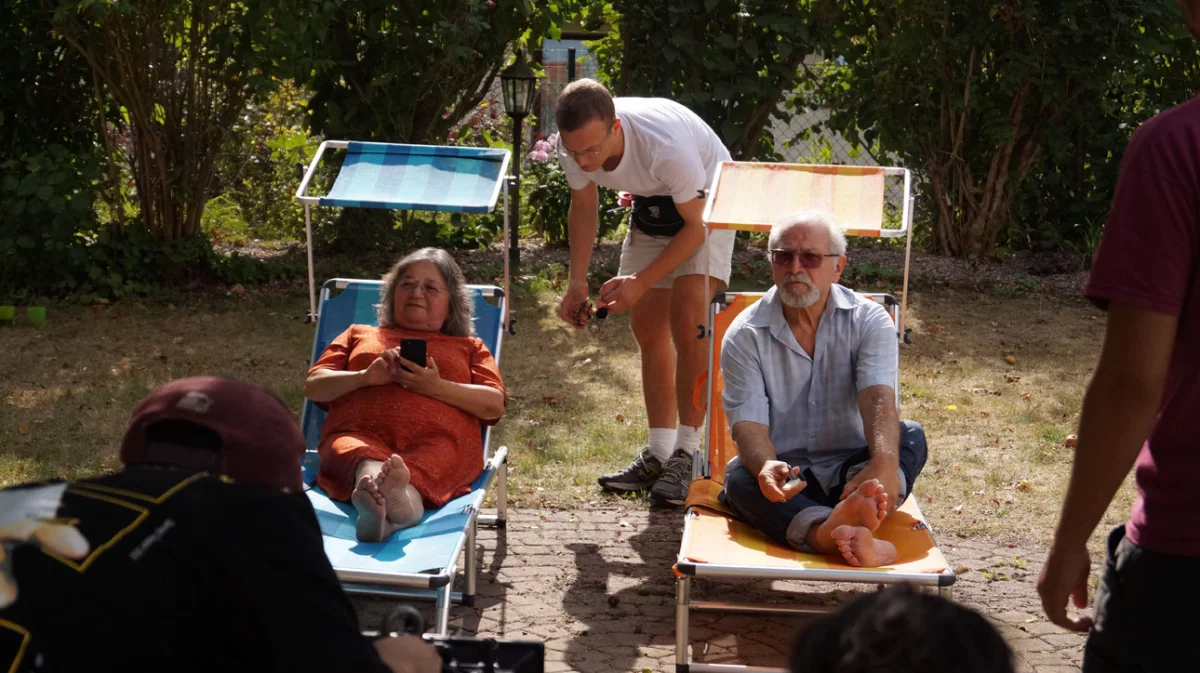
However, the real stars of the film are the three main actors Banafshe Hourmazdi, Eidin Jalali and Benjamin Radjaipour. It took longer than expected to get the three actors together. Work on "Futur Drei" began at the start of 2016 - and shortly afterwards the casting process began, which spanned Germany, Austria and Switzerland. The collective was looking for Iranians who are first or second generation Iranians living in Germany. There were many interviews about opinions and attitudes that were incorporated into the film. "Benjamin was on board very early on and we had many conversations," recalls Faraz. "It was important to us that the actors had biographical anchor points, i.e. that they had queer experiences and experiences of racism to underpin their characters."
In "Futur Drei", Directors Faraz Shariat takes us into the world of Parvis, whose life revolves around pop culture, queer dating and raves. The German-Iranian rediscovers his past through his refugee siblings Banafshe and Amon. A sensitive film about first love and life as a migrant in Germany. Co-producer is Dirk Manthey from Hamburg
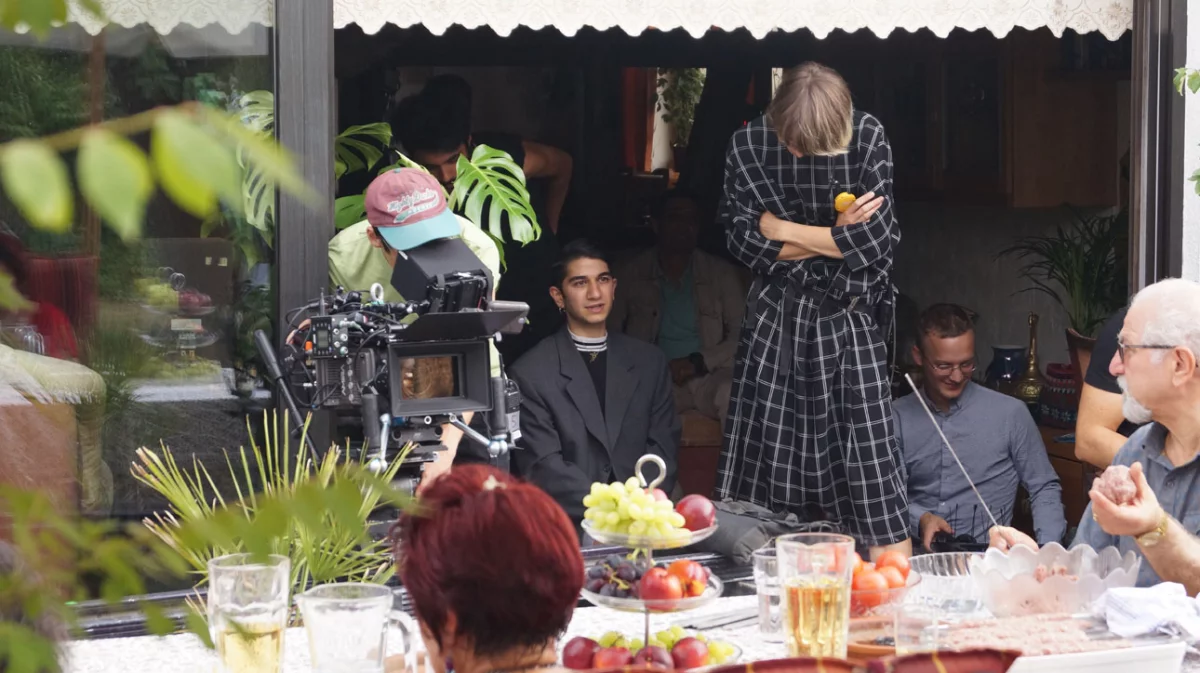
But at the end of the day, "Futur Drei" is largely the biographical story of the Director himself. When he auditioned for film funding or producers, he pitched his own story and experienced much of what is also the subject of the film - right down to the community service that Executive Producer Parvis has to do in a refugee shelter at the beginning of the film, which sets the film's story in motion. "For the film, I had to deal a lot with the question of identity, who I am and what I want. However, I want to move away from static formulations - towards a flowing image of being. Because I believe I am many things," says Faraz. We believe that too - and are already excited to see what films await us in the coming years.





